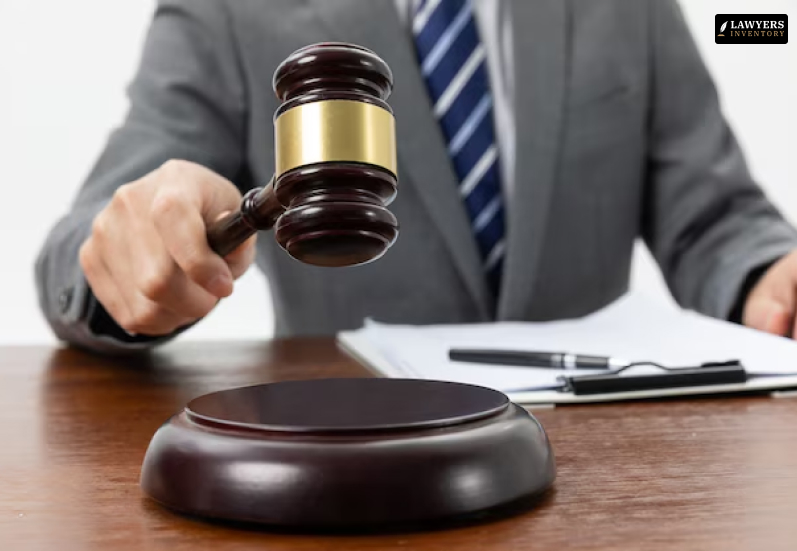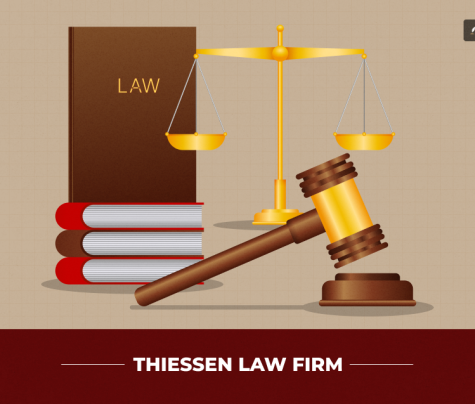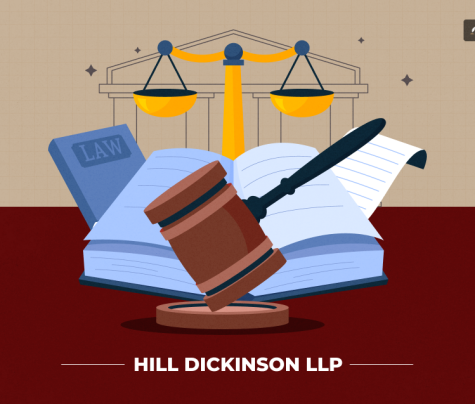
Key questions for a McKinney personal injury lawyer include the requisite experience & educational background, duration of practice in that area, win-loss record performed in similar cases, and billing structure.
Grasp the issues analyze the judge’s knowledge in that particular damaged situation, and finally, come to the case’s result. Knowing them how they respond to the different cases and how they approach the common legal issues as well is necessary.
Aside from looking at the scope of their professional connections, it can also instill confidence that they have a grasp of the dictions of the industry standard and practices of trade. And now you have this knowledge source which can help you to make your decision with absolute confidence and with a good future outlook.
Assessing Their Experience

Besides that, you should check the lawyers’ experience and expertise often to make sure they are sufficiently equipped to tackle the particular case.
The study of this assessment shoots off with the lawyer’s education examination. Undoubtedly, from the school of law which is reputable, one can get a legal profession that is built on a solid base. Often a jurist who has graduated from a reputable academy, who possesses the skill to grasp and operate with the complications of law, is the one in control of Zhang.
Other than being knowledgeable, client feedback also portrays the true picture of the court practice and skills of the lawyer.
The comments from the former clients could show how well-skilled the lawyer is in communication skills and their capability to relate to their clients. Also, the lawyer’s determination to persevere for the best results for their clients can be confirmed.
Furthermore, this provides testimonials from the clients, who share their observations on how the lawyer addresses the complexity of the personal injury law and his skills in advocacy for his client in court.
Understanding Their Speciality

It is essential for you to enter a specific area of practice that your personal injury lawyer is skilled in as this will help you understand better their qualifications.
No one would perform the screening of the specialist more accurately than the applicant himself, who requires the presence of such an area of law in the current trial.
Having your lawyer specialize in personal injury claims but not having him or her specialize in personal injury claims could be the turn between a successful claim and a disappointing outcome.
Attorneys who practice exclusively in the personal injury field possess a profound in-depth insight into the intricacies of these cases and often are more deft at navigating the merits of personal injury claims rather than those who do not stick to one area or the other.
It takes a lawyer who knows this field inside out, has the experience gained from years of practice, and is totally dedicated to their clients and achievement of justice.
A competent advisor should be those who have the expertise in the field where you want legal help. And for instance, if your accident relates to a car accident, a lawyer who specializes in motor vehicle accidents will be the best option for you.
They will be an experienced professional with the right background to understand your matter as it relates to the medical, insurance, and legal aspects.
Inquiring About Case Success Rate

Ask your lawyer about a history of his or her success with your injury cases and pick the attorney if this is acceptable to you. It should assist me in judging if they can adequately manage my issues and if they are the appropriate caregiver for my condition.
This discourse will concentrate on how to define and analyze case success, factors that can make cases successful or less successful, and how to interpret what a lawyer’s record shows or does not show.
Understanding Case Success Metrics
In order to make sure you’re entrusting your case to a successful professional, it’s vital to recognize the success metrics of your ability as a private injury legal professional. Metrics evaluation refers back to the method of analyzing the legal professional’s tune document, gauging their capacity to secure favorable case outcomes for his or her clients.
It includes appraising the ratio of instances won to those lost, the magnitude of settlements done, and the number of cases settled out of court versus those who proceeded to trial.
Understanding these measurements can provide a clearer picture of the lawyer’s capabilities, ensuring you make an informed decision. Remember, a successful lawyer is not merely defined by the number of cases won, but by the meaningful impact they have had on their clients’ lives.
Factors Influencing Success Rate

When selecting a personal injury attorney, it is imperative to investigate the multitude of factors that influence their case success rate. A primary factor is the legal approaches employed.
An attorney well-versed in the nuances of personal injury law would be adept at handling complex cases, thereby increasing the likelihood of favorable outcomes. Additionally, client testimonials provide valuable insight into their past successes.
Positive reviews not only reflect the lawyer’s competence but also their ability to establish strong client-lawyer relationships, essential for a productive litigation process. Hence, evaluating legal approaches and client testimonials can be instrumental in understanding the factors that contribute to a lawyer’s success rate.
Interpreting Lawyer’s Track Record
To accurately interpret a lawyer’s track record, potential clients must not hesitate to inquire about the attorney’s case success rate. These crucial statistics can provide a sizable indication of their expertise in the discipline of private injury regulation.
Carefully inspecting the variety of instances the attorney has received can offer a clearer picture of the legal professional’s credibility and potential to control your case successfully.
Further, patron testimonials function as a precious aid in evaluating an attorney’s track document, providing insights into their level of commitment and proficiency.
These firsthand bills may display the lawyer’s strengths, potential areas for improvement, and ordinary effectiveness in securing favorable results. Remember, a lawyer’s track document is a mirrored image of their accumulated talents and experience, which can be important factors in the pursuit of justice.
Decoding Their Fee Structure
Understanding the fee structure of your personal injury lawyer is pivotal in managing your finances throughout the case. It is essential to clarify the nature of contingency fees, the breakdown of miscellaneous expenses, and the potential for negotiating the lawyer’s percentage. This financial transparency can foster trust and set expectations, easing your journey through this challenging time.
Understanding Contingency Fees
Decoding the price shape of a private injury attorney can appear overwhelming, especially when it comes to the concept of contingency costs. In an attempt to promote fee transparency and patron safety, it’s important to apprehend that contingency expenses imply you’re now not required to pay any legal fees upfront. Instead, your lawyer will receive a percent of the compensation you are awarded if your case is a hit.
This percentage is normally between 25 and 40 percent, however, it can vary depending on the complexity of the case and at what level it is resolved. This arrangement aligns your pastimes with those of your legal professional, as they handiest get paid in the event that they secure a positive outcome for you.
Miscellaneous Expenses Breakdown
In addition to contingency fees, a thorough understanding of miscellaneous expenses involved in a personal injury case is essential to guarantee total transparency of your lawyer’s fee structure. Your lawyer should be able to provide an expense prediction, which can serve as a guide to what costs you may expect.
- Court costs: These include filing fees, deposition costs, and other administrative expenses.
- Expert witness fees: If your case requires an expert witness, their fees will be an additional cost.
- Investigation costs: Gathering evidence and researching the case can incur expenses.
- Medical records: Obtaining copies of medical records often comes at a cost.
- Travel expenses: Unforeseen costs may arise from travel related to your case.
Negotiating Lawyers Percentage
Understanding the complexities of a legal professional’s fee arrangement, especially regarding their percentage of the settlement, is a crucial step in ensuring a simple and open criminal technique.
The legal professional’s recognition can have an impact on the fee, with distinctly-regarded practitioners often charging higher possibilities. It’s vital to barter this component early on, ensuring it aligns along with your price range and expectations.
Settlement negotiation is another essential factor. A skilled lawyer might stabilize a great settlement, justifying a better price. However, it is important to stabilize this in opposition to the potential financial strain.
Always do not forget, that the goal is to receive honest reimbursement for your damage, now not to burden yourself with exorbitant legal fees. Therefore, expertise and negotiating your lawyer’s fee structure is vital for an honest and obvious legal manner.
Discussing Case Management
When it comes to the management of your case, your personal injury lawyer’s approach can greatly impact the outcome and progress of your lawsuit. An experienced attorney will establish a detailed case timeline, ensuring that all procedures and paperwork are completed promptly and correctly.
This not only expedites the process but also prevents potential setbacks. Moreover, your attorney should be able to present you with various settlement options, highlighting the pros and cons of each, to help you make informed decisions.
The following are critical aspects to discuss with your lawyer regarding case management:
- The anticipated timeline of your case, including key milestones
- Available settlement options and their implications
- Any potential obstacles and plans to overcome them
- The steps your lawyer will take to keep you informed about the case’s progress
- How your lawyer plans to involve you in the decision-making process
Understanding these elements will give you a clear picture of what to expect and how your lawyer intends to handle your case. Always remember, that a well-managed case is a step towards a successful outcome.
Unveiling Communication Style
Understanding the communication approach of your personal injury lawyer is a vital aspect of your working relationship. It is essential to assess their level of responsiveness, as this can greatly impact the progress of your case. Additionally, clear communication plays an integral role in ensuring both parties are aligned in their objectives and expectations.
Understanding Lawyer’s Communication Approach

In the domain of personal injury law, understanding your lawyer’s communication style is essential to achieving a smooth legal journey. This approach encompasses more than just verbal exchanges – it includes a lawyer’s empathy and cultural competence. Their ability to understand and respect your feelings, background, and experiences can greatly influence how well they represent your interests.
Consider the following aspects when evaluating a lawyer’s communication style:
- How well do they listen to you and understand your perspective?
- Do they display empathy and emotional intelligence?
- Can they effectively explain complex legal jargon in a way you understand?
- How comfortable are you when discussing sensitive matters with them?
- Does their communication style respect and consider your cultural background?
Evaluating Responsiveness Levels
Evaluating the responsiveness of your personal injury lawyer plays an important role in determining the effectiveness of their communication style. It is essential to assess how quickly and thoroughly they respond to your inquiries. This assessment can provide a clear insight into both their client attentiveness and the law firm’s efficiency. A responsive attorney will not only promptly address your concerns but also keep you updated on the progress of your case. They will exhibit a professional, empathetic approach to guarantee your legal needs are met. If your attorney is consistently unresponsive, it may be indicative of a lack of client commitment and a potential compromise on the quality of legal representation. Hence, evaluating responsiveness levels is an essential step in selecting your personal injury lawyer.
Importance of Clear Communication
As we explore the realm of clear communication, it is crucial to realize that the ability of a personal injury lawyer to articulate intricate legal terms and proceedings in a language that is easy to understand is a significant factor in ensuring a successful attorney-client relationship. This understanding minimizes communication barriers and fosters a collaborative environment.
- Effective communication aids in the thorough understanding of legal processes.
- Clear language minimizes communication barriers.
- Understanding legal jargon enhances clients’ ability to make informed decisions.
- Open communication can promote trust and confidence in your lawyer.
- Being able to ask questions and get clear answers reduces client anxiety and uncertainty.
Therefore, the importance of clear communication shouldn’t be underestimated when choosing your McKinney personal injury lawyer.
Questioning Their Litigation History
Probing into your potential personal injury lawyer’s litigation history can provide invaluable insight into their experience and success rate. Understanding their past litigation outcomes and the complexity of cases they have handled is an essential factor to take into account.
A lawyer’s litigation history can offer a snapshot of their legal prowess, illustrating their ability to navigate complex legal landscapes and secure favorable outcomes for their clients. It helps you assess whether they can handle your case, especially if it involves intricate legal issues.
Consulting with a skilled injury lawyer in McKinney can give you a clearer picture of their litigation history and success rate. Your lawyer’s success rate is another significant aspect. It is vital to ask about the percentage of cases won, settled, or lost. This information will help you gauge how likely they are to win your case. However, remember that each case is unique, and past success does not necessarily guarantee future results.
It is also beneficial to understand the types of cases they have dealt with. Have they handled cases similar to yours? If so, they might have the necessary expertise to handle your case effectively.
Checking Their Availability
After establishing the lawyer’s litigation history, it’s equally important to assess their availability to handle your case. A lawyer’s accessibility can make a significant difference in your case’s progress and outcome. Even the most skilled lawyer may not be of much use to you if they are not available when you need them due to scheduling conflicts.
To check the lawyer’s availability, consider the following steps:
- Ask them about their current caseload. Too many cases might mean they won’t give your case the attention it deserves.
- Inquire about their typical response time to emails and phone calls. Prompt communication is critical in personal injury cases.
- Determine if they have other commitments, such as teaching or consulting, that could interfere with your case.
- Find out their office hours, and if they are willing to meet you outside of these hours if necessary.
- Understand their policy on emergency situations. Would they be available if an urgent issue arises related to your case?
Fathoming Their Legal Approach
Understanding your potential lawyer’s legal approach is an indispensable aspect of your selection process, as it can markedly impact the progression and ultimate resolution of your personal injury case. This involves a thorough legal strategies exploration and a detailed approach to philosophy probing.
An attorney’s legal approach is their overall philosophy on how to handle cases. This can include their strategies in collecting evidence, their diligence in exploring all potential avenues for compensation, their approach to negotiations with opposing counsel, and their readiness to take your case to trial if necessary.
You may want to ask your potential lawyer how they plan to approach your case, and why they believe that approach will yield the best results. It’s important to find an attorney whose legal philosophy aligns with your own expectations and comfort level. You should feel confident that your attorney will advocate for your best interests, and that their approach to doing so is both strategic and thoughtful.
Being in tune with your lawyer’s legal approach can provide a sense of control and confidence during a potentially challenging time. It allows you to better understand the journey ahead, ensuring a smoother legal process and a more favorable outcome.
Knowing Their Professional Memberships
In your selection process for a personal injury lawyer, it is essential to take into account their professional memberships, as these affiliations often underscore the lawyer’s commitment to ethical standards, continuing education, and their connections within the legal community.
Understanding the Association Influence and Membership Benefits of these organizations can shed light on a lawyer’s dedication to their profession and the proficiency of their practice.
Consider the following benefits:
- Networking opportunities: Being part of professional organizations allows lawyers to build relationships, share knowledge, and collaborate with peers.
- Continuing education: Many associations provide resources, seminars, and training to keep their members updated with the latest legal trends and practices.
- Ethical standards: Membership often requires adhering to a code of conduct, ensuring lawyers uphold high ethical standards.
- Influence on legislation: Associations often lobby for changes in laws that directly impact their practice area, giving members an active role in shaping their legal landscape.
- Access to resources: Members often have access to research tools, legal databases, and other resources not readily available to non-members.
Trusting Your Gut Feeling
While evaluating the professional qualifications and memberships of a potential personal injury lawyer is undeniably vital, it is equally important to trust your instinctive response or gut feeling during the selection process. This subconscious reaction often stems from our brain processing information faster than we can consciously acknowledge, highlighting the intuition importance in decision-making.
Gut-based decisions can be particularly useful in personal injury cases, where the attorney-client relationship is paramount. You want to feel comfortable with your lawyer, knowing they genuinely care about your situation and are committed to achieving the best possible outcome for you. If something doesn’t feel right during your initial meetings, don’t ignore these feelings. Your instincts might be picking up on subtleties such as lack of sincerity, inadequate knowledge, or a dismissive attitude.
Trust in your lawyer is essential, and if your gut feeling is negative, it could potentially affect the progress and outcome of your case. Remember, it’s okay to rely on your intuition when selecting a personal injury lawyer. After all, this is a person who will represent your interests and fight for your rights. Trusting your gut can guide you towards a lawyer who is not only highly qualified but also the right fit for you.
Frequently Asked Questions
In the course of your case, you can expect consistent support through various communication channels such as emails and calls. Our dedicated support staff will provide timely updates and answer any queries you may have.
As a seasoned attorney, I have often employed settlement negotiations, leading to alternative resolutions outside of court. The frequency varies depending on each case’s unique circumstances, but it’s a common and beneficial practice.
To prepare for a potential court appearance, I would advise you to focus on appearance etiquette and documentation preparation. It’s important to present yourself professionally and have all necessary paperwork meticulously organized and ready.
Absolutely, enhancing your Case Education and Legal Literacy is essential. I can provide a variety of resources such as books, websites, and articles that extensively cover personal injury law and the associated legal process.
We prioritize client confidentiality through stringent data protection measures and robust confidentiality policies. Rest assured, all client information is secured and accessed only by authorized personnel, maintaining the highest standards of privacy and confidentiality.
Conclusion
Now you have a proper understanding of the questions you must ask your McKinney personal injury lawyer. Make sure you are getting answers to all these questions before you hire one for solving your personal injury claims in civil court. Best of luck.
Read Also:
- Online Child Abuse Cases: The Crucial Role Of A Lawyer
- What Facts Should You Know Before Hiring Personal Injury Lawyers?











0 Reply
No comments yet.